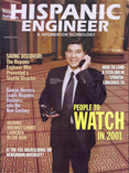The professional, scientific, and technical services sector offers some of the best jobs available – high skilled, high paying, and relatively flexible - but these jobs are disappearing, creating an acute need for highly skilled workers, according to a new study by the Sloan Center on Aging & Work.
More than 9 out of 10 workers in the professional, scientific, and technical services sector (93.1%) are “very” or “somewhat” satisfied with their jobs - considerably higher than employees in other sectors of the economy. However, the sector's employee base is aging and the impact of workers aging into retirement could be substantial. From just 2000-2007, the number of workers aged 55-64 increased by 45%, while workers aged 65 and above increased by 13%, in terms of total number of workers. This demographic shift is expected to impact this sector more acutely than others because of the reliance on workers with specialized skills.
Interestingly, although employers in this sector less frequently gauge employee career plans or work preferences or project retirement rates, they still overwhelmingly feel they have the right amount of programs to replace retiring workers.
Employers also report being in an advantageous position with regard to skills. Organizations in the professional, scientific, and technical services sector report fewer shortages of basic literacy in writing and math, human resources, customer relations, and technical computer skills and fewer problems associated with responding to employees’ family needs, unwanted turnover, morale, and absenteeism compared to organizations in other sectors. However, sales/marketing skills were reported to be in higher demand than among other sectors (31.1% vs. 28.1%, respectively).
One key difference between employers in this sector and other sectors is the prevalence of flexible work options:
More than three in five workers (62.5%) in the professional, scientific, and technical services sector are often allowed to change their schedules, compared to just a little over half that number (32.9%) in other sectors; and
Most employees in the professional, scientific, and technical services sector (95.3%) have complete or some freedom in deciding how to do their jobs, though younger employees are significantly less likely to have complete or some freedom.
Overall, a culture of flexibility is pervasive among professional, scientific, and technical services organizations, who:
Make an effort to inform employees of flexible work options (69.8%, compared to 47.8% of organizations in other sectors);
Clearly communicate the importance of flexibility for business/organizational success (60.5%, compared to 40.1% of others);
Clearly communicate the importance of flexibility for employees’ lives at work and at home (51.4%, compared to 34.6% of others);
and
Support discussions of flexibility with supervisors (86%, compared to 65.7% in other sectors).
Access Talent Pressures and the Aging Workforce: Professional, Scientific & Technical Services Sector
http://www.bc.edu/research/agingandwork/meta-elements/pdf/publications/TMISR06_ProfScientificTech.pdf

